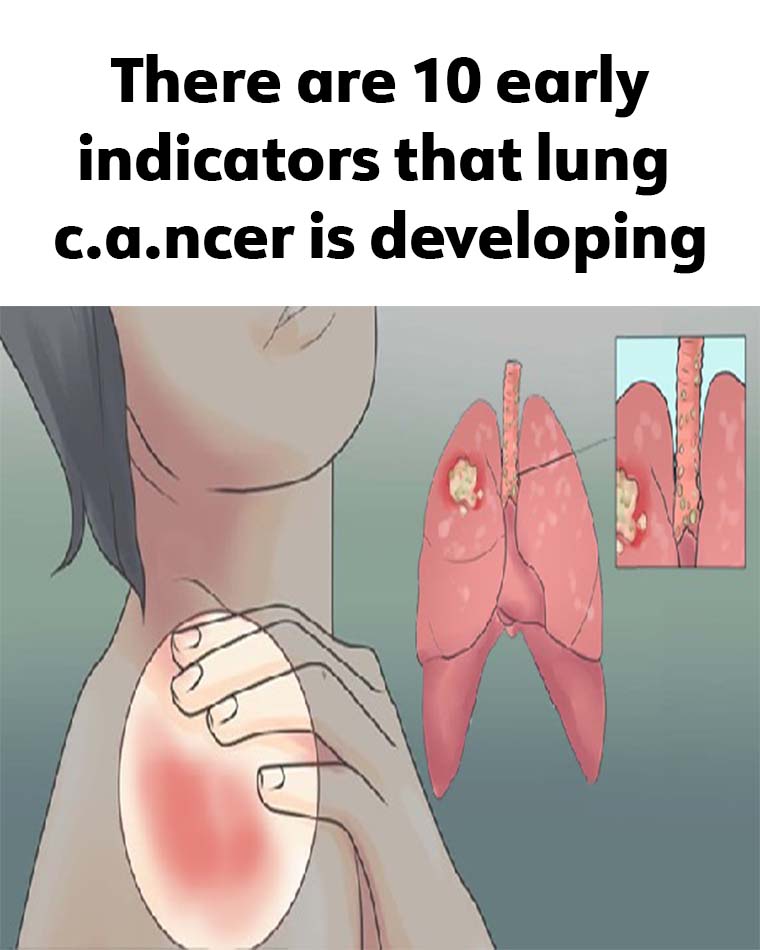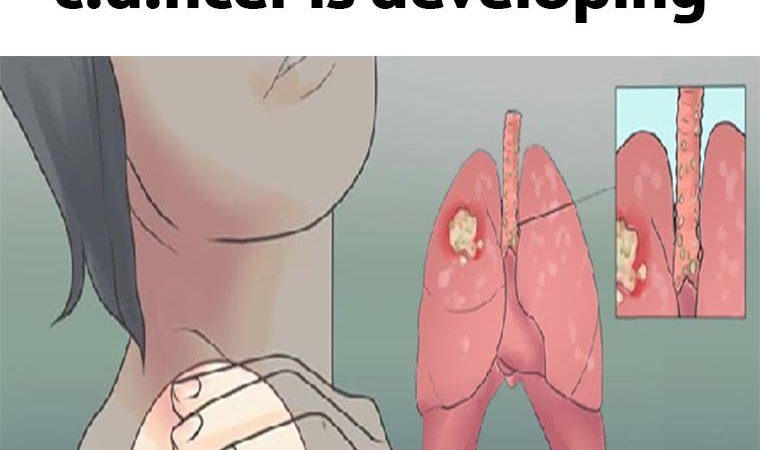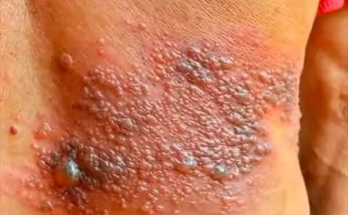
According to the American Cancer Society, lung cancer can be a silent killer due to its subtle and frequently overlooked symptoms.
Even if you don’t smoke, it doesn’t mean you’re immune to lung cancer. This disease can affect almost anyone, so it’s crucial to be aware of the specific signs that could indicate cancer development. Detecting any cancer early increases your chances of recovery and extends your lifespan.

- Bloody Cough
Everyone occasionally coughs up phlegm, especially when ill, but there should never be blood. If you cough up a few drops of blood, it’s a sign that you need to consult a doctor. The bleeding will only worsen over time. - Unexplained Weight Loss
Losing weight is generally a positive thing, but losing a significant amount of weight without altering your lifestyle is a warning sign of potential cancer. The body isn’t utilizing nutrients properly, causing it to shed them. Consequently, you lose weight even though you’re eating and exercising normally. - Bone Pain
Many cancers eventually spread to the bones since they’re close to nearly every major organ in the body. If you notice aches in your hips or back, ask a doctor to examine your health. Although other issues, such as arthritis, might be causing the pain, lung cancer could also be a contributing factor. - Worsening Cough
You may have a chronic cough or a new one. If this cough persists, the Mayo Clinic recommends seeing a medical professional. This symptom is a common indication of lung cancer and typically appears in the early stages of the disease. Pay attention to the cough and get it checked promptly. - Chest Pain
Any chest pain is a cause for concern among patients as this area encompasses the lungs and heart. If you take a deep breath and experience a pain or a pinch, consult a doctor as soon as possible. Lung cancer might be pressing on your chest and causing the discomfort. - Chronic Respiratory Problems
When you contract pneumonia or other respiratory infections, they should resolve and leave you in good health. However, for lung cancer patients, these respiratory problems tend to linger for months. Doctors may even prescribe antibiotics that only provide minimal relief from the infection, making cancer a real possibility. - Wheezing
Lung cancer patients often experience wheezing because something is obstructing the proper flow of air in their bodies. This wheezing won’t subside until a doctor can determine the underlying cause. It could be a simple respiratory infection, but it could also be cancer. - Chronic Fatigue
Cancer cells attack healthy body cells, keeping the immune system in a constant state of high alert. As a result, cancer patients are almost always fatigued. Their bodies are engaged in a battle against the invading cancer cells. Discuss any fatigue issues with a professional before they worsen. - Hoarseness
Healthy lungs allow you to speak clearly, but when cancer develops, it makes breathing challenging. As a result, you may sound hoarse most of the time. Your doctor can examine your lungs, throat, and mouth to determine the cause of your chronic hoarseness. - Seasonal Allergies
Another unexpected sign of possible lung cancer is hay fever or seasonal allergies. When allergy sufferers inhale pollen and air pollutants, their immune systems overreact. The sinuses become congested with phlegm, and they may wheeze. However, these symptoms can also be associated with lung cancer. If your hay fever symptoms remain unchanged day after day, it’s essential to see a doctor promptly. A professional can determine whether the problems are genuinely a seasonal reaction or something more serious.
Doctors conduct allergy tests on patients to see if their bodies react to exposure to common allergens. If these allergy tests yield no results, doctors often employ other procedures to identify any internal issues. For example, X-rays and MRIs are common tests for patients.

These images assist doctors in visualizing the internal organs and making an accurate diagnosis.
If you notice these symptoms in your daily life, be honest with your doctor. Your doctor can easily order tests to rule out any problems. Ignoring symptoms won’t make them disappear and could lead to advanced-stage lung cancer. Take care of yourself and maintain good health for the best chance of a long life.



